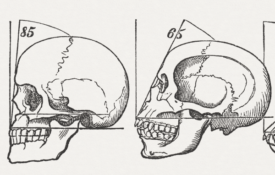-
This One Simple Trick Can Make Your New Year’s Resolution More Likely to Stick
Want to replace your television habit with exercise? "I want to start running" could work better than "I want to quit watching TV so much." How we phrase our New Year's resolution could give us a slight edge as to whether or not we'll stick to the new habit, according to a study published Wednesday in the open-access journal PLOS One. Frame your resolution in the positive, as something you're committing to doing may work better than framing your goal around quitting a bad habit or avoiding a particular greasy food. Researchers at Stockholm University and Linköping University in Sweden analyzed resolutions made by 1,066 people.
-
This Year, Try Downsizing Your Resolutions
After the unpredictable, torrid year we’ve had, the idea of making New Year’s resolutions for 2021 might seem a tad overwhelming. ... Just because it’s the first of January doesn’t mean you will automatically feel motivated to start a new habit. “You’re not going to sustain a behavior change unless you have internal motivation,” said Sara L. Dolan, an associate professor of psychology and neuroscience at Baylor University in Waco, Texas. So when making New Year’s resolutions, consider what changes you’d like to make, but also why you want to make them, Dr. Dolan advised. What makes you feel committed to reaching your goal? ...
-
Don’t Let The Pandemic Winter Get You Down: 9 Creative Ways To Socialize Safely
With COVID-19 cases still soaring across the U.S., it can be tempting to just ride the winter out on the couch, binging on Netflix. But psychologists say it's important in 2021 for us all to keep up human contact. ...
-

Primatology and Psychology, Shedding Light on Culture and Behavior
Frans de Waal explores the connection between primatology and psychology and how they intersect on issues of culture and behavior.
-
A Smile at a Wedding and a Cheer at a Soccer Game Are Alike the World Over
In the 19th century, French clinician Guillaume-Benjamin-Amand Duchenne posited that humans universally use their facial muscles to make at least 60 discrete expressions, each reflecting one of 60 specific emotions. Charles Darwin, who greeted that number with some skepticism, was invested in exploring the universality of facial expressions as evidence of humanity’s common evolutionary history. He ended up writing a book about human expressions, leaning heavily toward the idea that at least some were common across all cultures. ...
-

New Research in Psychological Science
A sample of research on children’s susceptibility to trust strangers, prosocial behaviors in adolescents, temporal structure in memory, memory accuracy for real-world events, effort and pupillometric investigation, personality changes and career, and a neurobiological examination of delayed judgments of learning.

